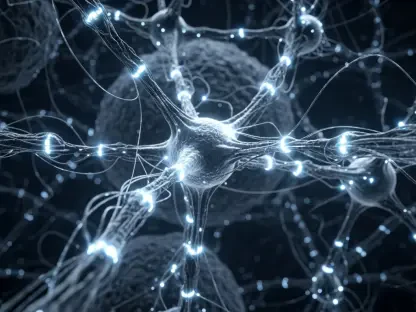A recent study conducted by researchers at NYU Langone Health has reexamined the purported link between a mother’s health during pregnancy and the likelihood of her child developing autism. This study disputes previous assertions that maternal health conditions during pregnancy contribute directly to autism risk in offspring. Instead, the researchers found that many of these previously reported associations could be attributed to other factors such as genetics, environmental influences like pollution, and disparities in healthcare access. By analyzing a comprehensive dataset from a Danish national registry, the researchers were able to provide a more nuanced understanding of the factors influencing autism development.
Challenging Long-Held Beliefs
Dr. Magdalena Janecka, the senior author of the study and an associate professor in both the Department of Child and Adolescent Psychiatry and the Department of Population Health at NYU Grossman School of Medicine, emphasized that the research indicates no strong evidence supporting that maternal health diagnoses cause autism. The findings, published in the journal Nature Medicine on January 31, challenge long-held beliefs and offer a new perspective that places less burden of responsibility on maternal health conditions for autism development.
The study was comprehensive, encompassing medical histories of over 1.1 million pregnancies among 600,000 mothers from a Danish national registry. Unlike the fragmented medical records often encountered in the United States, Denmark’s centralized healthcare system allows for more cohesive and accurate data analysis by assigning a single government-issued number to each individual’s health record. This enabled researchers to examine each woman’s medical history against 1,700 distinct diagnoses defined by international standards (ICD-10 codes) and detected in at least 0.1% of pregnancies (236 diagnoses). This level of detail and organization significantly contributed to the robustness and reliability of the study’s conclusions, reinforcing the claim that maternal health conditions alone do not directly result in autism.
Broad Exploration and Extensive Controls
Dr. Vahe Khachadourian, the study’s lead author and a research assistant professor in the Department of Child and Adolescent Psychiatry at NYU Grossman School of Medicine, underscored the novelty of this study for its broad exploration of possible associations between maternal diagnoses and autism while controlling for concurrent conditions and confounding factors. This approach allowed the researchers to delve into multiple aspects of maternal health, examining how various conditions intersect and potentially influence autism risk from a comprehensive and multidimensional perspective.
One major strength of the study was its incorporation of extensive controls, which aimed to address potential confounders that could provide alternative explanations for the observed associations. Key confounding factors included sociodemographic status and maternal age, given that older mothers are more frequently diagnosed with certain health conditions, such as hypertension, and that their children have a higher likelihood of being diagnosed with autism. By accounting for these variables, the researchers were better able to isolate the specific effects of various health conditions and their nuanced roles in autism development.
Even after accounting for these variables, 30 maternal diagnoses persisted as statistically significant in their association with autism. To further dissect these relationships, the researchers included siblings of autistic children in their analysis. They discovered that many of the maternal conditions diagnosed in pregnancies of both autistic and non-autistic children could likely be attributed to familial factors — notably, genetic predispositions. This comprehensive analytical approach allowed for a deeper and more accurate understanding of how these factors interplay, providing a clearer picture of autism’s complex etiology.
Genetic and Familial Factors
Supporting this claim, the study highlighted that genes contributing to conditions like depression are also implicated in increasing autism risk. This suggests that if a mother experienced depression during pregnancy and her child developed autism, it is more probable that shared genetic factors caused both conditions rather than the depression itself affecting fetal development in a way that results in autism. This finding underscores the importance of considering genetic predispositions when examining the potential risk factors for autism and highlights the interconnected nature of mental health conditions and developmental disorders.
The researchers also extended their analysis to fathers’ medical histories. Any observed link between paternal health conditions and autism would predominantly point to familial factors since fathers’ direct biological impact on fetal development post-conception is limited. They found that many conditions in fathers were as significantly associated with autism as maternal diagnoses were. This reinforces the idea that familial genetic factors play a substantial role in autism risk, further distancing the condition from being a direct consequence of maternal health during pregnancy.
Ultimately, the only maternal diagnosis consistently associated with higher autism risk was pregnancy complications related to the fetus. These findings support the hypothesis that such fetal diagnoses might be early indicators of autism rather than causal factors, reinforcing the idea that autism begins developing prenatally rather than as a result of maternal health conditions during pregnancy. This distinction is crucial for guiding future research and developing more targeted interventions to support individuals with autism and their families.
Reassuring Mothers and Shifting Focus
A recent study by researchers at NYU Langone Health has revisited the supposed link between a mother’s health during pregnancy and the likelihood of her child developing autism. The study challenges previous claims that maternal health conditions directly increase autism risk in children. Instead, researchers discovered that many of these previously reported connections might be due to other factors such as genetics, environmental influences such as pollution, and differences in healthcare access. By examining a detailed dataset from a Danish national registry, the researchers provided a more refined understanding of the factors influencing autism development. This comprehensive analysis underscores the complexity of autism, suggesting that the interplay of genetics, environmental conditions, and healthcare disparities must be considered. The study’s findings may shift the focus of autism research and policies aimed at addressing and reducing autism risk in children, pointing to a broader range of contributing factors beyond maternal health alone.









